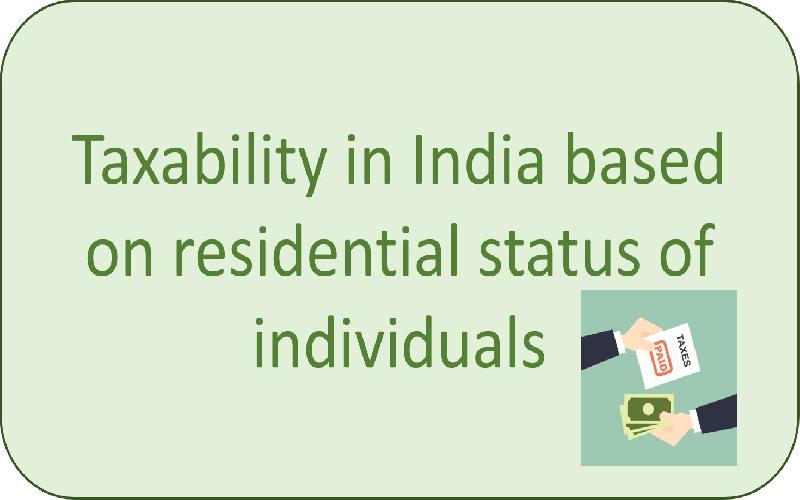Conditions to determine the residential status as per Income Tax Act & taxability thereon


There are certain conditions to determine the residential status of an individual as per Income Tax Act in India. In this article, these conditions are brought forth and the taxability based on residential status.
Under the provisions of the Act, the scope of total income of an individual depends upon his residential status and also on the place and time of accrual or receipt of income. An individual in India can either be a resident or a non-resident. Resident of India is further categorized into resident & ordinary resident and resident but not ordinary resident.
The following depicts the method of determining the residential status of an individual under the Income Tax Act-
Based on the residential status, the incidence of tax on an individual is as follows:
In other words, if an individual satisfy the following two conditions then his world wide income is liable to tax in India:
Let us understand the above discussion with the help of the following illustration:
|
Sl. No. |
Tax Year |
Stay in India (days) |
|
1 |
April 1, 2018 to March 31, 2019 |
185 |
|
2 |
April 1, 2017 to March 31, 2018 |
300 |
|
3 |
April 1, 2016 to March 31, 2017 |
300 |
|
4 |
April 1, 2015 to March 31, 2016 |
145 |
|
5 |
April 1, 2014 to March 31, 2015 |
15 |
|
6 |
April 1, 2013 to March 31, 2014 |
- |
|
7 |
April 1, 2012 to March 31, 2013 |
- |
|
8 |
April 1, 2011 to March 31, 2012 |
- |
|
9 |
April 1, 2010 to March 31, 2011 |
- |
|
10 |
April 1, 2009 to March 31, 2010 |
- |
|
11 |
April 1, 2008 to March 31, 2009 |
- |
In the above example, an Individual is satisfying both conditions of the Para 1.4 i.e. his stay in India exceed 182 days (refer Sl. No.
1) in the Indian tax year and his stay in India exceed 182 days in the Indian tax year at least 2 out of 10 preceding Indian tax years (refer Sl. No. 2 and 3 out of Sl. No. 2 to 11) and his aggregate stay in India for 730 days or more in 7 preceding India tax years (760 days being the sum of Sl. No. 2 to 8). As a result, for the tax year April 1, 2018 to March 31, 2019 individual’s world wide income would taxable in India.
However, India-source income is taxable irrespective of the residential status of an Individual. The following are considered as India-source income:
A budget in simple terms is a plan for allocating resources and specifying how resources will be allocated or spent during a particular period. It shows the amount of money that is available for, required for, or assigned to a particular purpose or period of time. .
Accounting is very much essential for calculating profit and loss and to prepare the balance sheets. Generally, their are two types of users of accounting information in the society i.e.
PowerPoint presentation provides an opportunity to increase their presentation skills to business professionals . This article provides the benefits of using PowerPoint as a presentation tool..